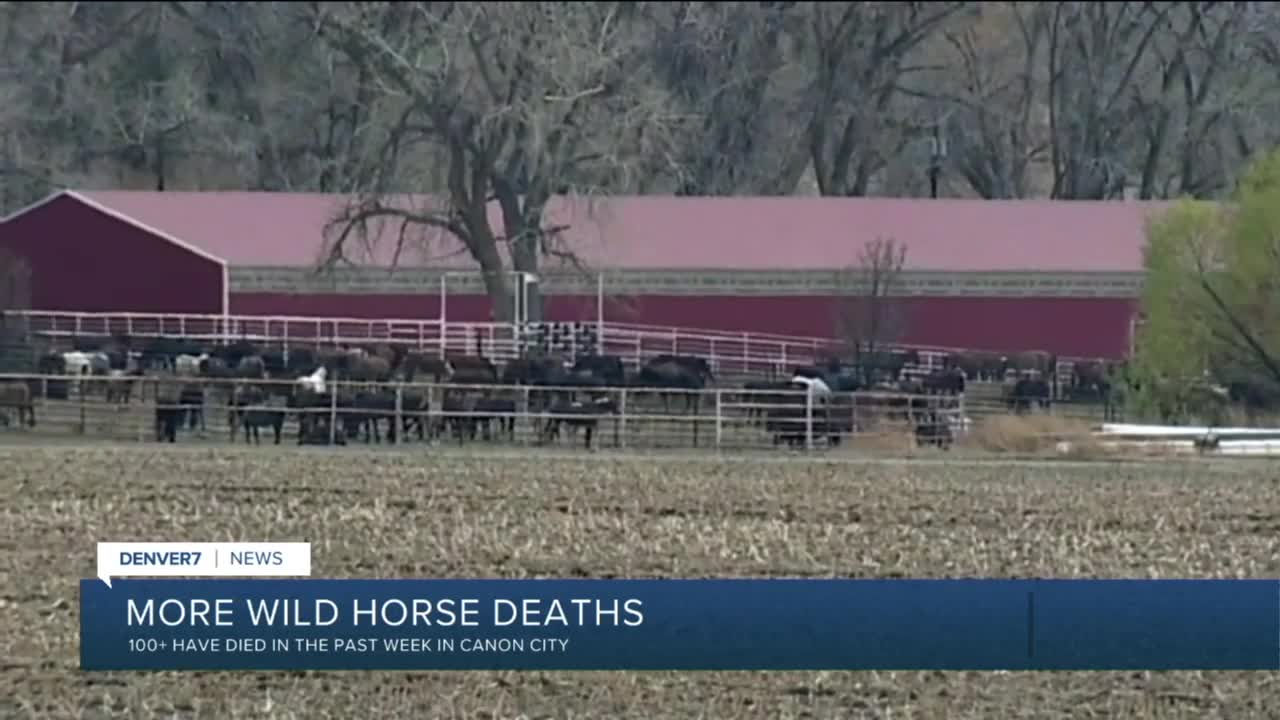UPDATE: As of June 9, 145 horses have died at the Cañon City Wild Horse and Burro Facility since April 23.
...
DENVER — An additional two wild horses have died at the Cañon City Wild Horse and Burro Facility bringing the total to 138 as of Sunday.
On April 28, the Bureau of Land Management said PCR lab tests that were sent to two top veterinary labs in the U.S. identified the cause of the deaths as likely due to a respiratory outbreak of H3N8 equine influenza. The bureau said it is “not uncommon” in both wild and domesticated horses.
The BLM said PCR tests had also identified two different equine herpes viruses – EHV-2 and EHV-5 – but that it was unclear how those viruses might be contributing to the severity of the influenza in the horses.
The bureau has reported the following deaths this week:
- Saturday: Four deaths
- Sunday: 11 deaths
- Monday: Two deaths
- Tuesday: Three deaths
- Wednesday: Four deaths
- Thursday: Two deaths
- Friday: Two deaths
- Saturday: Five deaths
- Sunday: Two deaths
MORE: Wild horse roundups in Colorado: Your opinion on what should be done
The BLM said the group of horses that are dying have all come from a group called the “West Douglas horses” – which were rounded up in August 2021 after the Oil Springs Fire burned about 12,000 acres south of Rangely last June.
Most of the facility population is current for their flu/rhino vaccination, however, the West Douglas horses in some pens are either unvaccinated, have only received one shot or only recently received their booster shots about 10 days before the outbreak, according to the BLM’s most recent incident report.
About 40-60% of the West Douglas horses were showing signs of fever, nasal discharge and coughing, and about 20% of horses in other pens throughout the facility were showing similar symptoms, another recent report says.
Dr. Albert Kane, with USDA APHIS Veterinary Services in Fort Collins, and Steve Leonard, the WHB State Lead for the Bureau of Land Management in Colorado, stated in the report that in addition to voluntary quarantine of the entire facility, supportive care for affected animals and biosecurity measures have been put in place.
They said individual animal treatment will be limited because most of the affected horses cannot be treated without use of systems that could risk “further spreading the illness throughout the facility” or causing stress to the animals that could exacerbate underlying issues.
Preventive medication is being considered but hasn’t been implemented as of Friday.
Recommendations in recent reports include added cleaning and disinfecting procedures for trucks and equipment, bringing in a separate loader to handle the carcasses of the dead and further sampling for more clinical signs of disease.
Initially, officials couldn’t pin down what was causing the outbreak, which first began on April 23.
During early stages of the investigation, officials thought the illness was neurologic but later attributed it to hypoxia from severe pneumonia.




